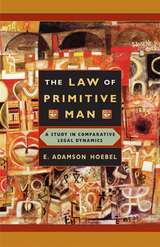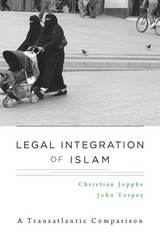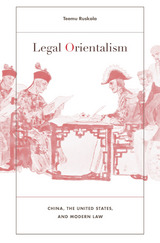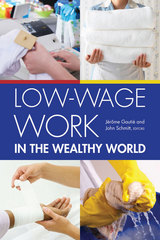5 start with L start with L


The status of Islam in Western societies remains deeply contentious. Countering strident claims on both the right and left, Legal Integration of Islam offers an empirically informed analysis of how four liberal democracies—France, Germany, Canada, and the United States—have responded to the challenge of integrating Islam and Muslim populations. Demonstrating the centrality of the legal system to this process, Christian Joppke and John Torpey reject the widely held notion that Europe is incapable of accommodating Islam and argue that institutional barriers to Muslim integration are no greater on one side of the Atlantic than the other.
While Muslims have achieved a substantial degree of equality working through the courts, political dynamics increasingly push back against these gains, particularly in Europe. From a classical liberal viewpoint, religion can either be driven out of public space, as in France, or included without sectarian preference, as in Germany. But both policies come at a price—religious liberty in France and full equality in Germany. Often seen as the flagship of multiculturalism, Canada has found itself responding to nativist and liberal pressures as Muslims become more assertive. And although there have been outbursts of anti-Islamic sentiment in the United States, the legal and political recognition of Islam is well established and largely uncontested.
Legal Integration of Islam brings to light the successes and the shortcomings of integrating Islam through law without denying the challenges that this religion presents for liberal societies.

Since the Cold War ended, China has become a global symbol of disregard for human rights, while the United States has positioned itself as the world’s chief exporter of the rule of law. How did lawlessness become an axiom about Chineseness rather than a fact needing to be verified empirically, and how did the United States assume the mantle of law’s universal appeal? In a series of wide-ranging inquiries, Teemu Ruskola investigates the history of “legal Orientalism”: a set of globally circulating narratives about what law is and who has it. For example, why is China said not to have a history of corporate law, as a way of explaining its “failure” to develop capitalism on its own? Ruskola shows how a European tradition of philosophical prejudices about Chinese law developed into a distinctively American ideology of empire, influential to this day.
The first Sino-U.S. treaty in 1844 authorized the extraterritorial application of American law in a putatively lawless China. A kind of legal imperialism, this practice long predated U.S. territorial colonialism after the Spanish-American War in 1898, and found its fullest expression in an American district court’s jurisdiction over the “District of China.” With urgent contemporary implications, legal Orientalism lives on in the enduring damage wrought on the U.S. Constitution by late nineteenth-century anti-Chinese immigration laws, and in the self-Orientalizing reforms of Chinese law today. In the global politics of trade and human rights, legal Orientalism continues to shape modern subjectivities, institutions, and geopolitics in powerful and unacknowledged ways.

Life imprisonment has replaced capital punishment as the most common sentence imposed for heinous crimes worldwide. As a consequence, it has become the leading issue in international criminal justice reform. In the first global survey of prisoners serving life terms, Dirk van Zyl Smit and Catherine Appleton argue for a human rights–based reappraisal of this exceptionally harsh punishment. The authors estimate that nearly half a million people face life behind bars, and the number is growing as jurisdictions both abolish death sentences and impose life sentences more freely for crimes that would never have attracted capital punishment. Life Imprisonment explores this trend through systematic data collection and legal analysis, persuasively illustrated by detailed maps, charts, tables, and comprehensive statistical appendices.
The central question—can life sentences be just?—is straightforward, but the answer is complicated by the vast range of penal practices that fall under the umbrella of life imprisonment. Van Zyl Smit and Appleton contend that life imprisonment without possibility of parole can never be just. While they have some sympathy for the jurisprudence of the European Court of Human Rights, they conclude that life imprisonment, in many of the ways it is implemented worldwide, infringes on the requirements of justice. They also examine the outliers—states that have no life imprisonment—to highlight the possibility of abolishing life sentences entirely.
Life Imprisonment is an incomparable resource for lawyers, lawmakers, criminologists, policy scholars, and penal-reform advocates concerned with balancing justice and public safety.

READERS
Browse our collection.
PUBLISHERS
See BiblioVault's publisher services.
STUDENT SERVICES
Files for college accessibility offices.
UChicago Accessibility Resources
home | accessibility | search | about | contact us
BiblioVault ® 2001 - 2024
The University of Chicago Press









